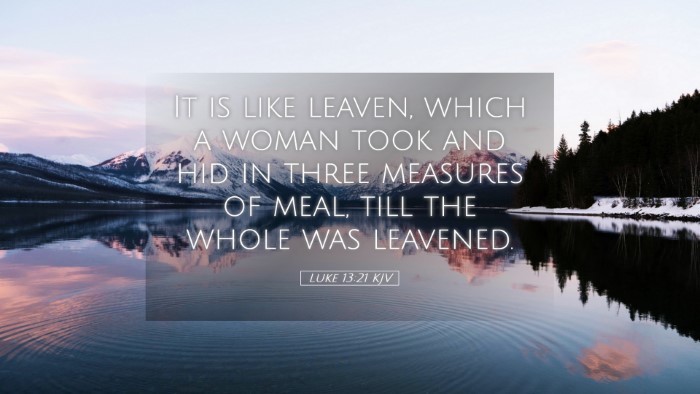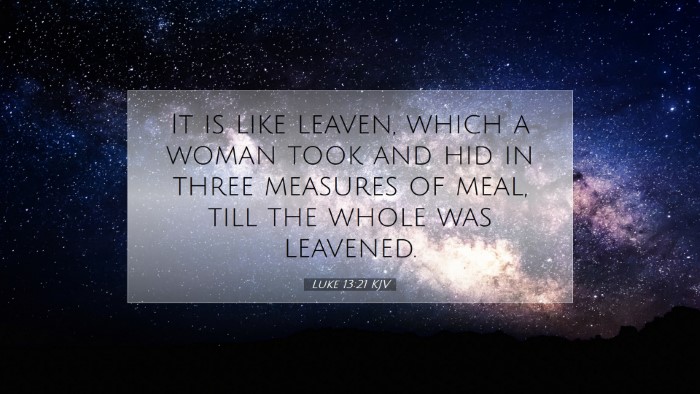Old Testament
Genesis Exodus Leviticus Numbers Deuteronomy Joshua Judges Ruth 1 Samuel 2 Samuel 1 Kings 2 Kings 1 Chronicles 2 Chronicles Ezra Nehemiah Esther Job Psalms Proverbs Ecclesiastes Song of Solomon Isaiah Jeremiah Lamentations Ezekiel Daniel Hosea Joel Amos Obadiah Jonah Micah Nahum Habakkuk Zephaniah Haggai Zechariah MalachiVerse
Luke 13:1 Luke 13:2 Luke 13:3 Luke 13:4 Luke 13:5 Luke 13:6 Luke 13:7 Luke 13:8 Luke 13:9 Luke 13:10 Luke 13:11 Luke 13:12 Luke 13:13 Luke 13:14 Luke 13:15 Luke 13:16 Luke 13:17 Luke 13:18 Luke 13:19 Luke 13:20 Luke 13:21 Luke 13:22 Luke 13:23 Luke 13:24 Luke 13:25 Luke 13:26 Luke 13:27 Luke 13:28 Luke 13:29 Luke 13:30 Luke 13:31 Luke 13:32 Luke 13:33 Luke 13:34 Luke 13:35

